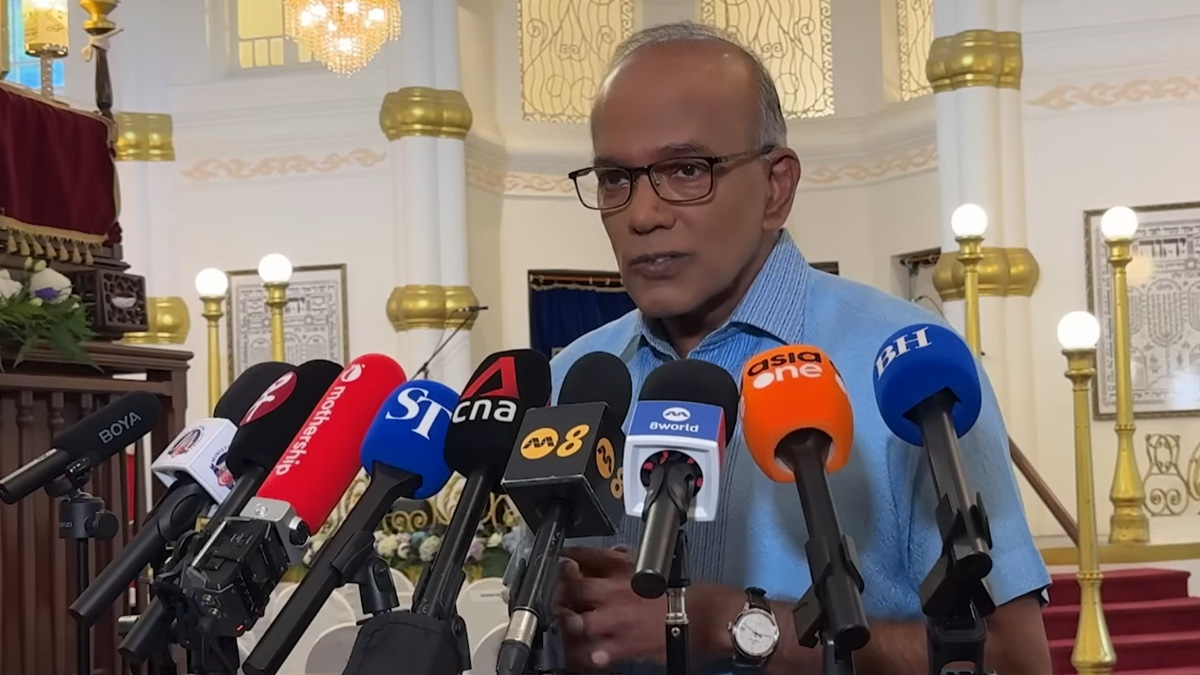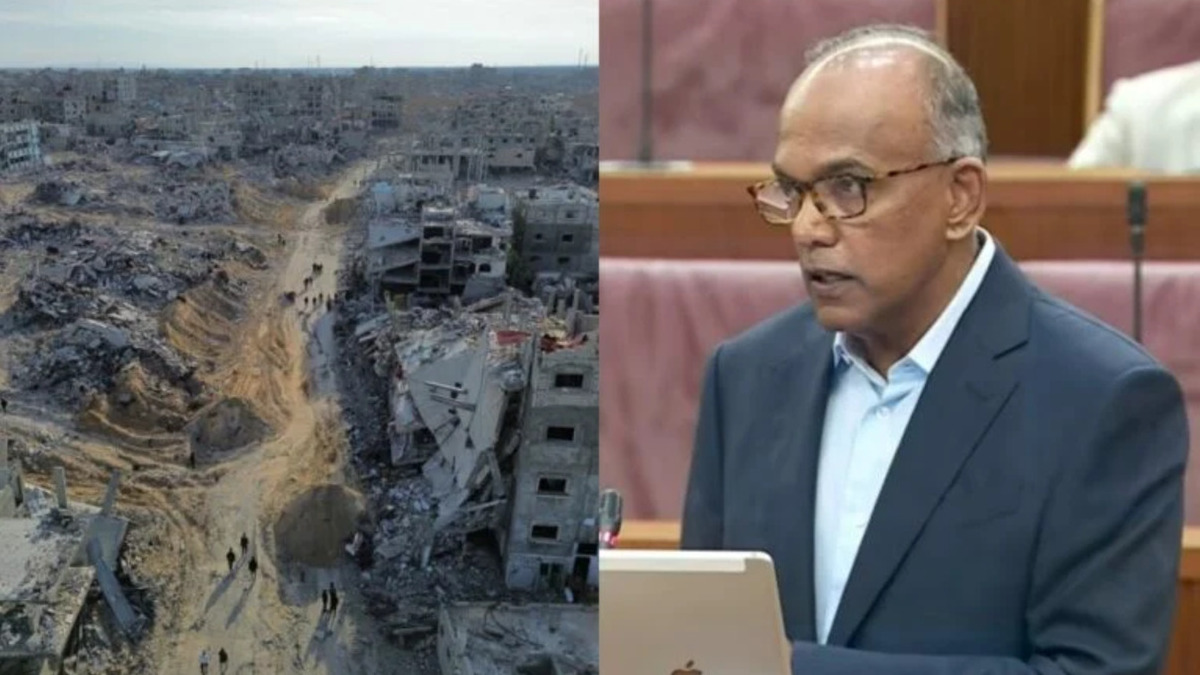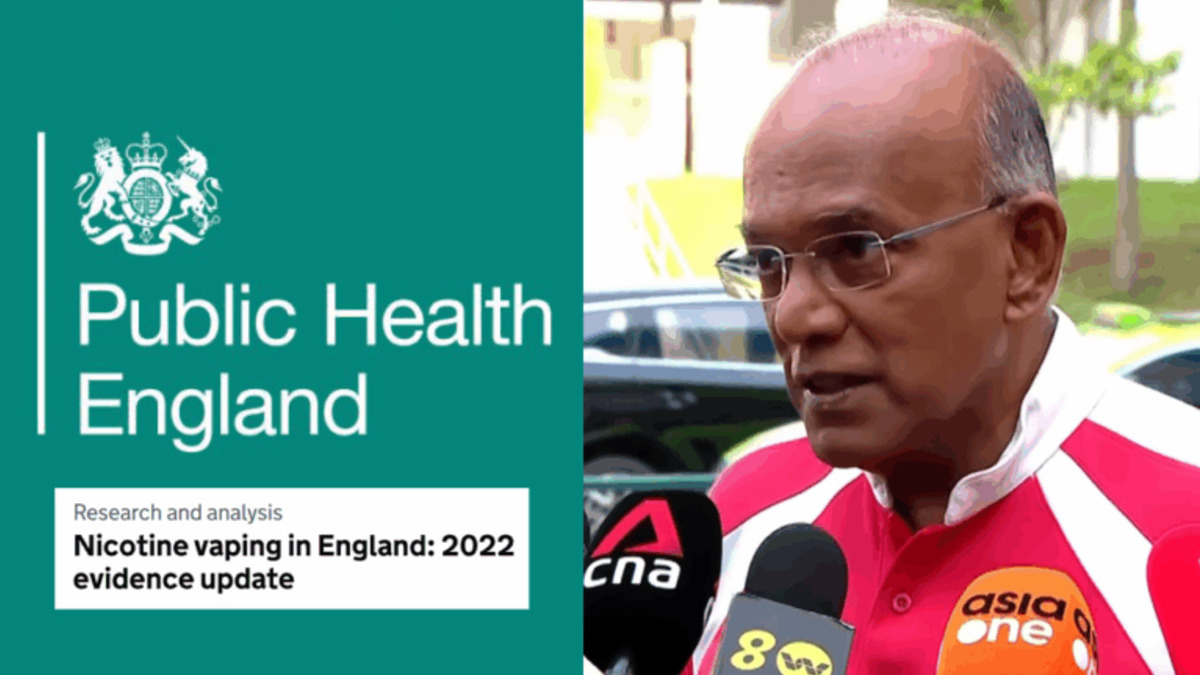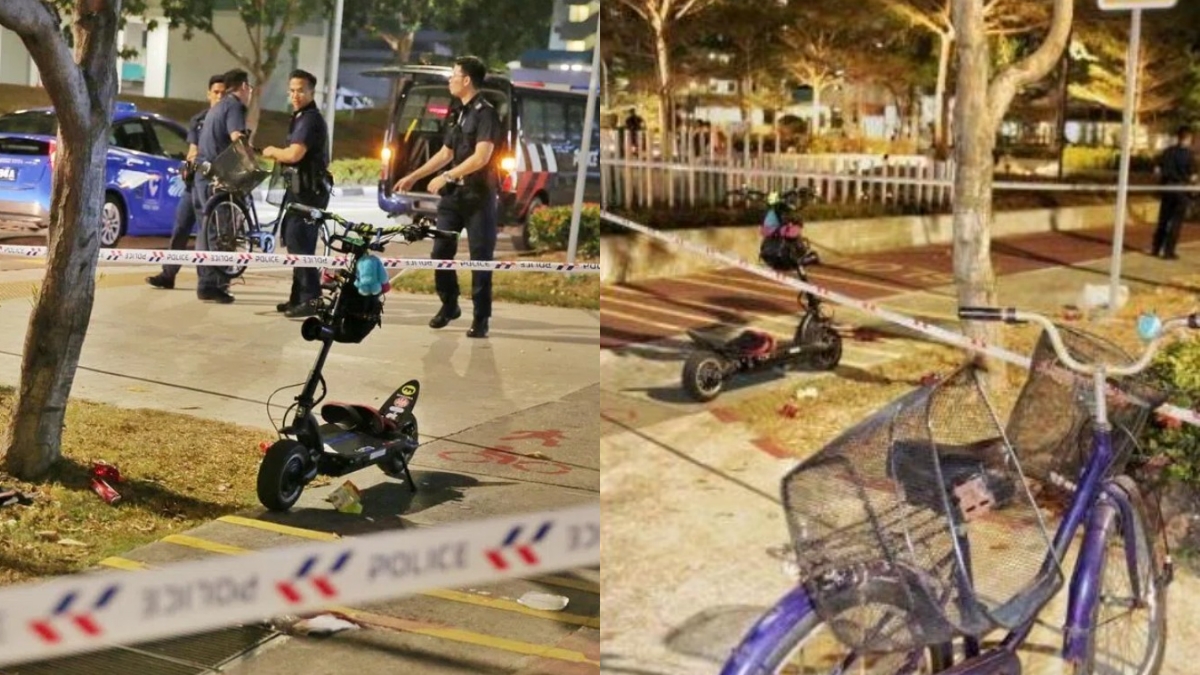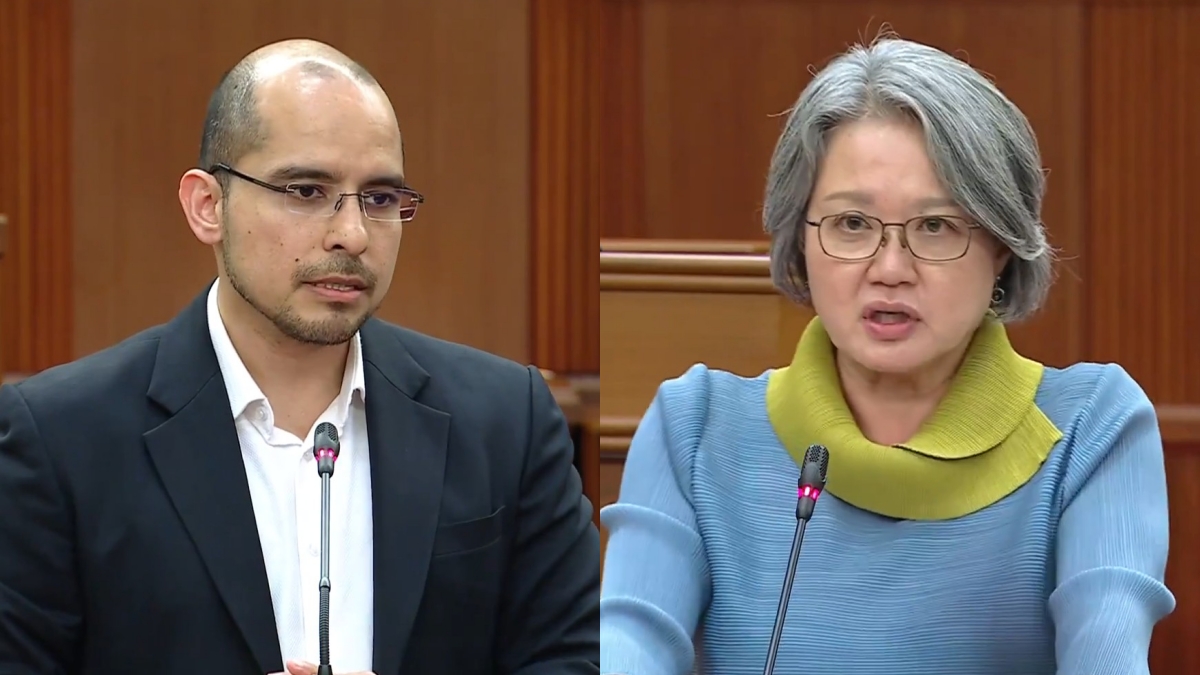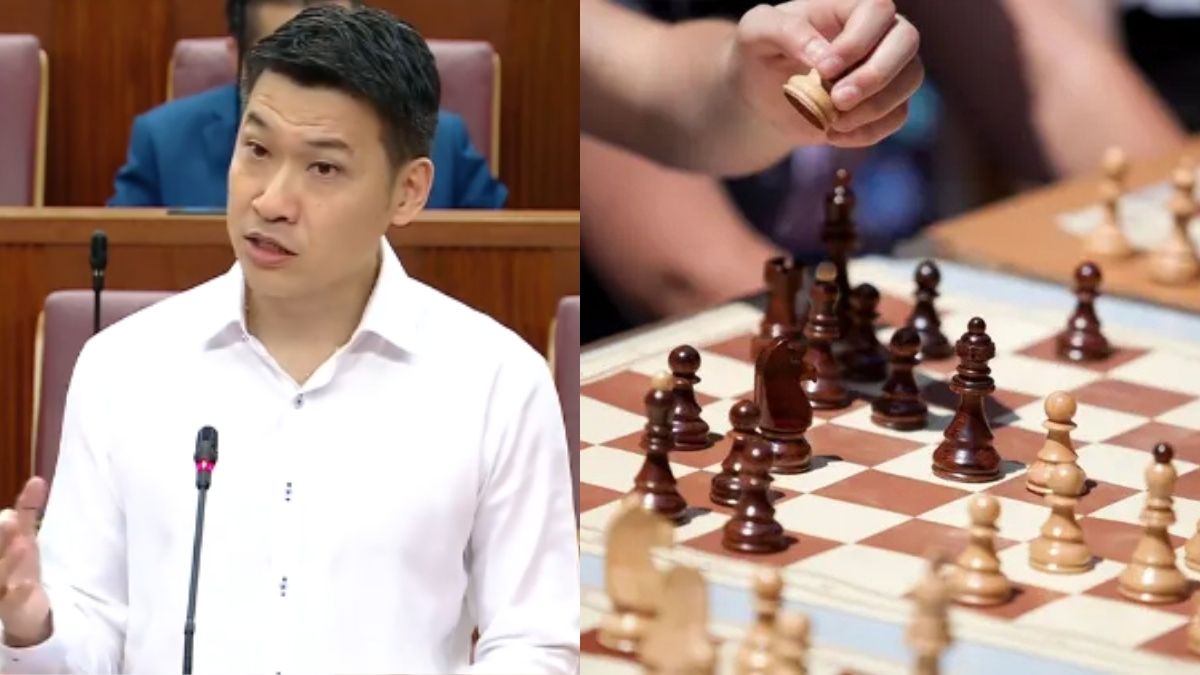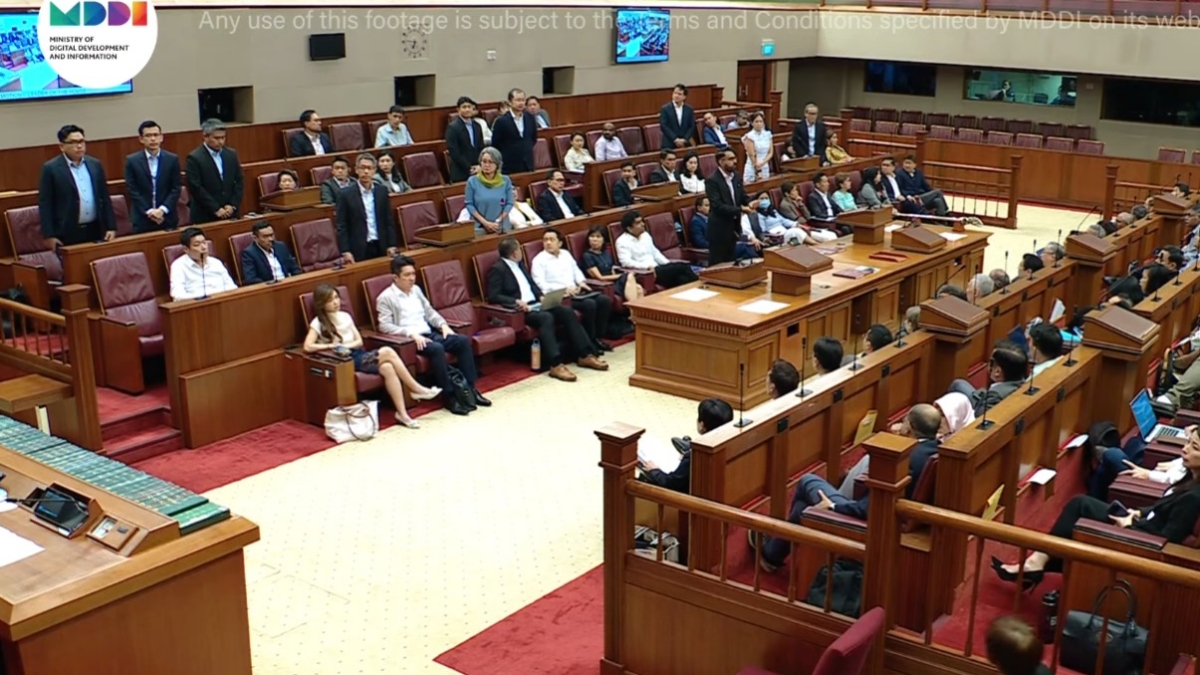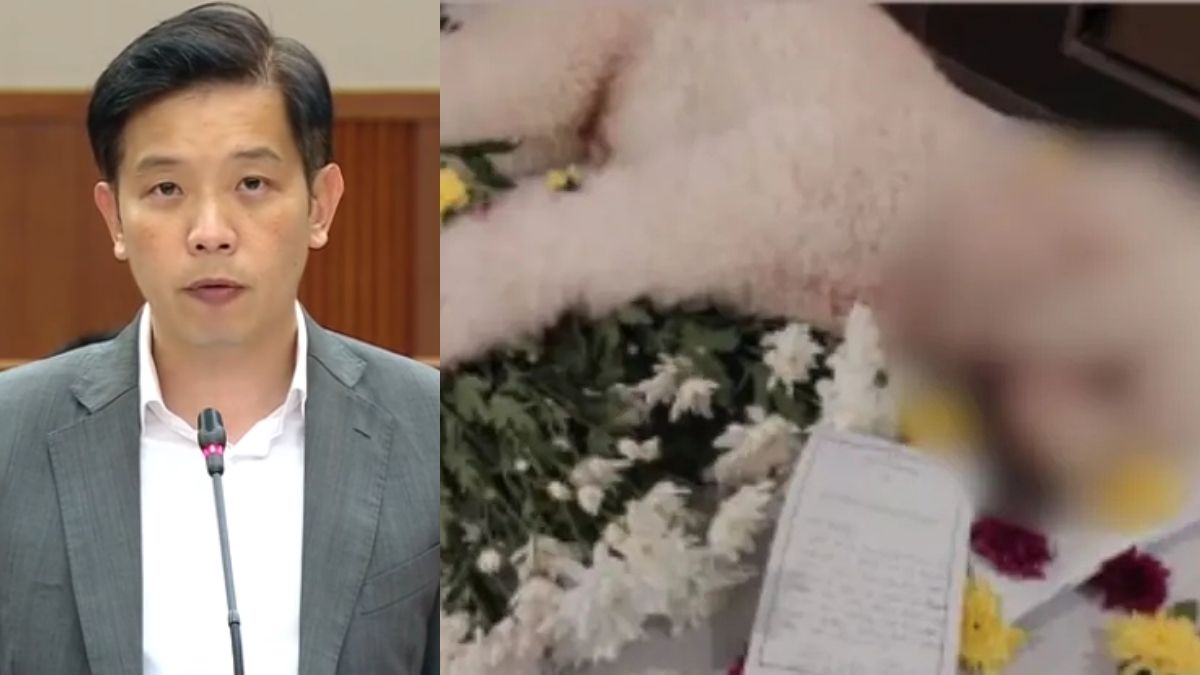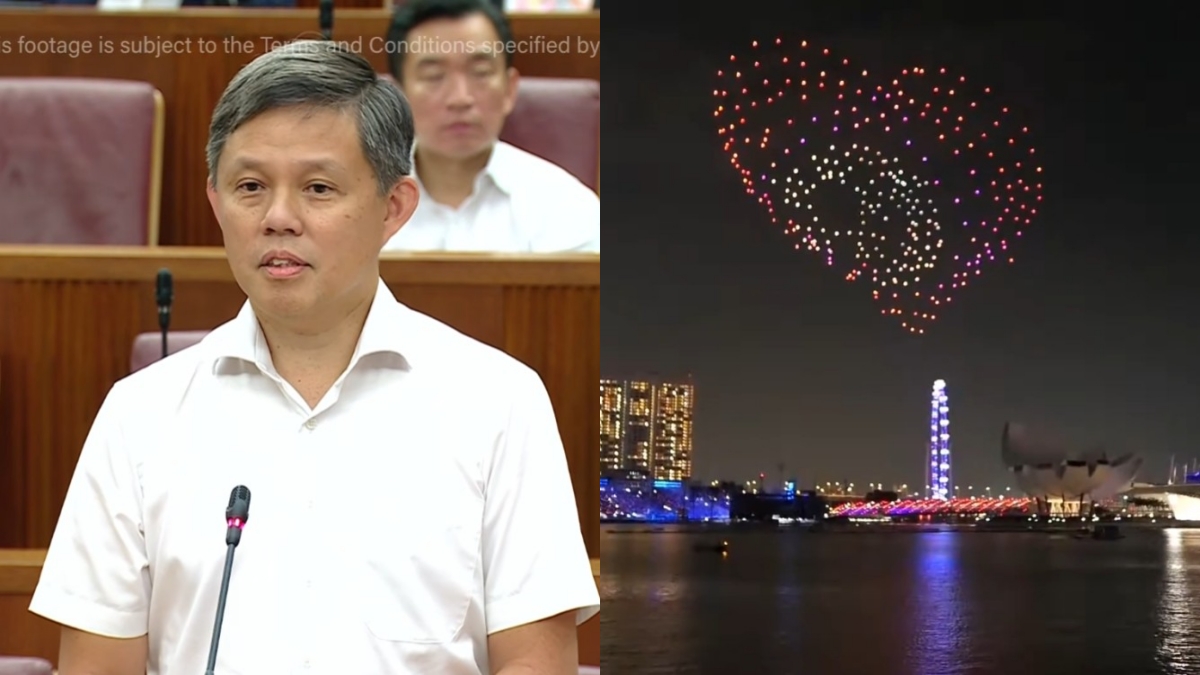Shanmugam declines to reject partisan foreign social media posts after WP MP’s challenge
Minister K. Shanmugam declined to reject politically charged posts from foreign blogger Critical Spectator when asked by WP’s Kenneth Tiong in Parliament, following earlier criticisms over an endorsement of WP’s candidate.
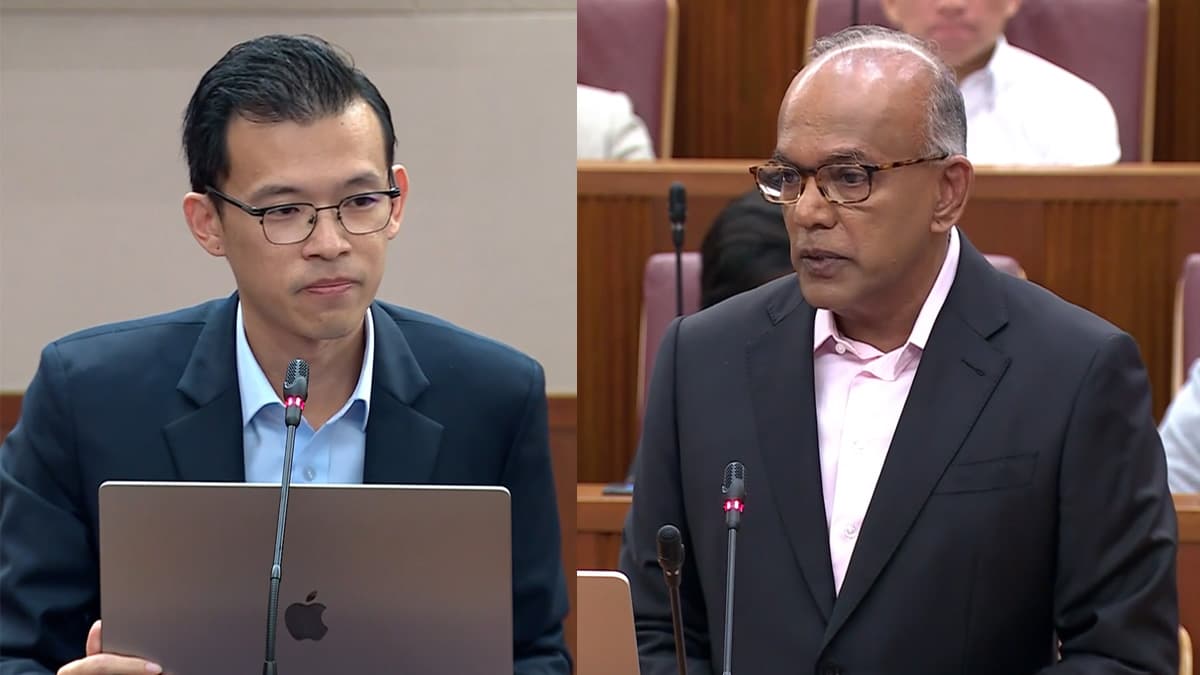
In a ministerial statement delivered in Parliament on 14 October 2025, Home Affairs and Law Minister K Shanmugam warned of the dangers of identity politics and foreign interference in Singapore’s elections, referencing several incidents during the 2025 General Election that, in his view, crossed critical lines.
Shanmugam who is also the Coordinating-Minister for National Security focused in particular on the actions of Islamic preacher Noor Deros, who had urged Malay-Muslim voters to support the Workers’ Party’s (WP) Faisal Manap over the People's Action Party’s (PAP) Masagos Zulkifli in Tampines GRC.
Shanmugam criticised WP’s response to this episode as delayed and ambiguous, arguing that it failed to clearly reject calls for voting along religious and racial lines.
Shanmugam said such appeals could damage Singapore’s social fabric and create communal divisions if not addressed decisively. He argued that political parties must reject identity-based mobilisation “immediately, clearly and unequivocally,” warning that anything less could mislead voters and open the door to dangerous political dynamics.
The Minister called for a principled and consistent approach to rejecting foreign interference and identity politics, regardless of which party is involved.
During the ensuing debate, WP MP for Aljunied GRC Kenneth Tiong raised a pointed question, asking whether the PAP would apply the same standards to foreign individuals who post racially charged content in support of the ruling party.
Tiong cited Michael Petraeus, a Polish national behind the Critical Spectator platform, who has published controversial articles supportive of the PAP.
One article, titled “WP abandons Muslim voters, turns to the Chinese”, was specifically mentioned by Tiong as an example of racially charged foreign commentary.
“His platform was previously taken down from Facebook for policy violations. He continues to try to influence our politics from his foreign perch, this time favouring the PAP,” said Tiong.
“Will the PAP categorically reject and disavow his support today, just as the minister demanded that the Workers' Party do so within 24 hours?”
Shanmugam responded by saying that the two cases were not equivalent. He explained that foreign commentary — even when provocative — does not automatically constitute unlawful interference in Singapore’s political process.
“There are a variety of people who have commentaries running on Singapore. The Economist comments on politics in Singapore. The New York Times runs articles. The South China Morning Post runs articles,” said Shanmugam.
“Michael Petraeus is not the only foreigner who runs commentaries, sometimes for the government, sometimes against, sometimes favouring the Workers' Party.”
He noted that the government does not monitor or censor every foreign comment on Singaporean politics, and that taking action against such commentary would be legally and practically untenable unless it crosses specific thresholds.
“If we took that definition [of foreign interference] every day, we would be doing nothing but taking down and trying to object to various international journals,” said Shanmugam. “But if there is a specific attempt to interfere in the elections, and if Critical Spectator has put out any such post, I would welcome Mr Tiong to send it to us.”
Tiong later responded, “I thank the Minister for clarifying that the PAP will not be categorically rejecting Michael Petraeus’s actions.” Shanmugam immediately pushed back, stating, “Do not put words in my mouth.”
The Minister then turned the question back on WP, asking whether the opposition party supported blanket censorship of all foreign political commentary and whether it would back legislation to that effect. “If the Workers' Party would support it, then we will talk about it,” said Shanmugam.
The exchange was especially pointed because the controversy involving Noor Deros formed the central basis of Shanmugam’s criticism of WP in his ministerial statement.
He accused WP of failing to issue a timely and firm rejection after Noor, a religious figure, publicly urged Muslims in Singapore to vote for WP’s Malay candidates, particularly Faisal Manap, on racial and religious grounds.
However, WP Chief Pritam Singh clarified that Noor Deros—a Singaporean based in Malaysia—had gatecrashed a meeting involving the party’s candidates and various religious leaders, and that no commitments or agreements were made.
WP’s statement, issued on 26 April, emphasised the party’s commitment to secularism and the integrity of Singapore’s electoral process.
Despite this, Shanmugam said the response was insufficient and did not amount to a categorical rejection of Deros’ attempt to influence voters along communal lines. He stressed that, had WP issued a stronger statement promptly — such as the example he had provided — much of the confusion could have been avoided.
During his ministerial statement, Shanmugam also criticised other instances of what he described as identity-based campaigning, including comments by Singapore Democratic Party (SDP) candidate Damanhuri Abas, who allegedly urged voters to consider race when casting their ballots.
Shanmugam acknowledged that it is legitimate for political parties to advocate policies that benefit specific communities. However, he drew a distinction between this and explicitly appealing for votes based on race or religion.
“It is totally acceptable to advocate ways to advance a particular community or discuss legitimate community concerns,” he said. “But we must ensure our advocacy is conducted responsibly, in a manner that upholds Singapore’s unity.”
He added that community-based policies — such as those benefiting the Malay-Muslim community — must be framed within a broader national interest, rather than in zero-sum terms.
Contrary to Shanmugam’s denial of awareness regarding Critical Spectator’s postings, however, The Online Citizen (TOC) editor Terry Xu had previously filed a police report in July 2020 alleging that Michael Petraeus — through Critical Spectator — had attempted to influence voting behaviour during the 2020 General Election.
Xu’s report cited several Facebook posts in which Petraeus commented on WP candidates, including Raeesah Khan, and expressed views on party policies and tax proposals.
Xu argued that Petraeus, as a foreign national, had shown “clear intent to influence the election” — a potential breach of Section 83(1)(d) of the Parliamentary Elections Act, which prohibits non-citizens from engaging in election activity.
No public legal action was taken upon Petraeus till date.


